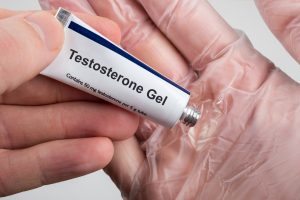
As with so many other harmful drugs, the use of testosterone went off the rails when companies pushed the drug’s use for off-label purposes. Although testosterone replacement therapy was approved to treat just two specific conditions, companies eventually pushed their products to treat all kinds of other conditions, uses never approved by the FDA. According to the Third Amended Master Long-Form Complaint filed in the testosterone multi-district litigation (MDL 2545), it was this aggressive off-label marketing and label-expansion that led to many unnecessary injuries, suffering, and thousands of lawsuits.
FDA Approves Testosterone For Treatment of Two Conditions
In 1953 the FDA first approved a version of synthetic testosterone to treat two conditions: (1) primary hypogonadism and (2) hypogonadotropic hypogonadism. Since that time the FDA has not approved testosterone to treat any other diseases or conditions.
 North Carolina Product Liability Lawyer Blog
North Carolina Product Liability Lawyer Blog





